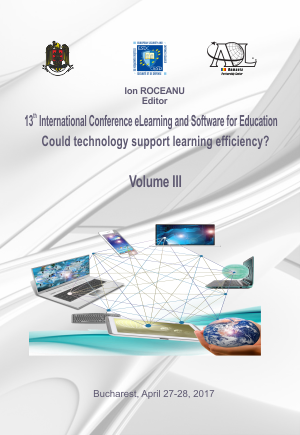VIRTUAL REALITY, EDUCATIONAL GAMES AND LEISURE IN CONTEMPORARY SOCIETY: THE SPORT PEDAGOGY POINT OF VIEW
VIRTUAL REALITY, EDUCATIONAL GAMES AND LEISURE IN CONTEMPORARY SOCIETY: THE SPORT PEDAGOGY POINT OF VIEW
Author(s): Emanuele Isidori, Iosif Sandor, Alessandra FazioSubject(s): Social Sciences
Published by: Carol I National Defence University Publishing House
Keywords: virtual reality; educational games; leisure; sport; pedagogy.
Summary/Abstract: Play and game are two activities which allow us to be and develop as human beings, and they represent two basic components of education conceived of as a practice of teaching and learning. The importance of these activities which belong both to human nature and culture has been stressed by many modern and contemporary philosophers and educationists (Schiller, Huizinga, Simon, etc.). In recent years, the Polish sociologist and philosopher Zygmunt Baumann, father of so-called "liquid theory" of society, has discussed the role and function of play and game within postmodern society. Pedagogy as a theoretical and practical science of education highlights the importance of examining and studying all human games in order to identify those that can be better used as a means to promote education and its values in the context of leisure. Sort pedagogy as a science of physical and leisure activity is interested in this topic. To be clear, this science is interested in studying sport as a recreational activity which always implies body actions, movement, and play/game. For this reason, among the points of view of the sciences dealing with the study of human games, that of sport pedagogy can be seen as one of the most capable of explaining, comprehending and understanding what play and game really are and their meaning for the person and her/his education. The digital revolution and the advent of virtual reality in all its forms (mainly 3D) we experience in our everyday life have created new scenarios for developing new educational games and virtual ways to play the sports. All these scenarios frame and mark a new digital era in which communication technologies give rise to new trends in education, and edutainment (a concept expressing both education and entertainment) plays a fundamental role and function. For this reason, starting from this cultural analysis and utilizing a hermeneutical methodological approach, our study will classify, first all, the different types of educational games, and show their implications from a theoretical point of view. Secondly, it will stress the importance of sport pedagogy in studying the issues dealing with this specific research field. Our aim is to show that digital and virtual games are emerging tools capable of fostering leisure along with health, exercise, and sport. We want to demonstrate that this kind of games allows pupils and children as digital natives to learn and to be educated in a true educational way, that is playing. In conclusion, because of their being wonderful tools to improve learning skills and to promote educational values and the sports in their different aspects, educational and virtual reality-based games have not to be considered with suspicion by educators and (physical education) teachers but a great opportunity to teach and learn.
Journal: Conference proceedings of »eLearning and Software for Education« (eLSE)
- Issue Year: 13/2017
- Issue No: 01
- Page Range: 146-153
- Page Count: 8
- Language: English

